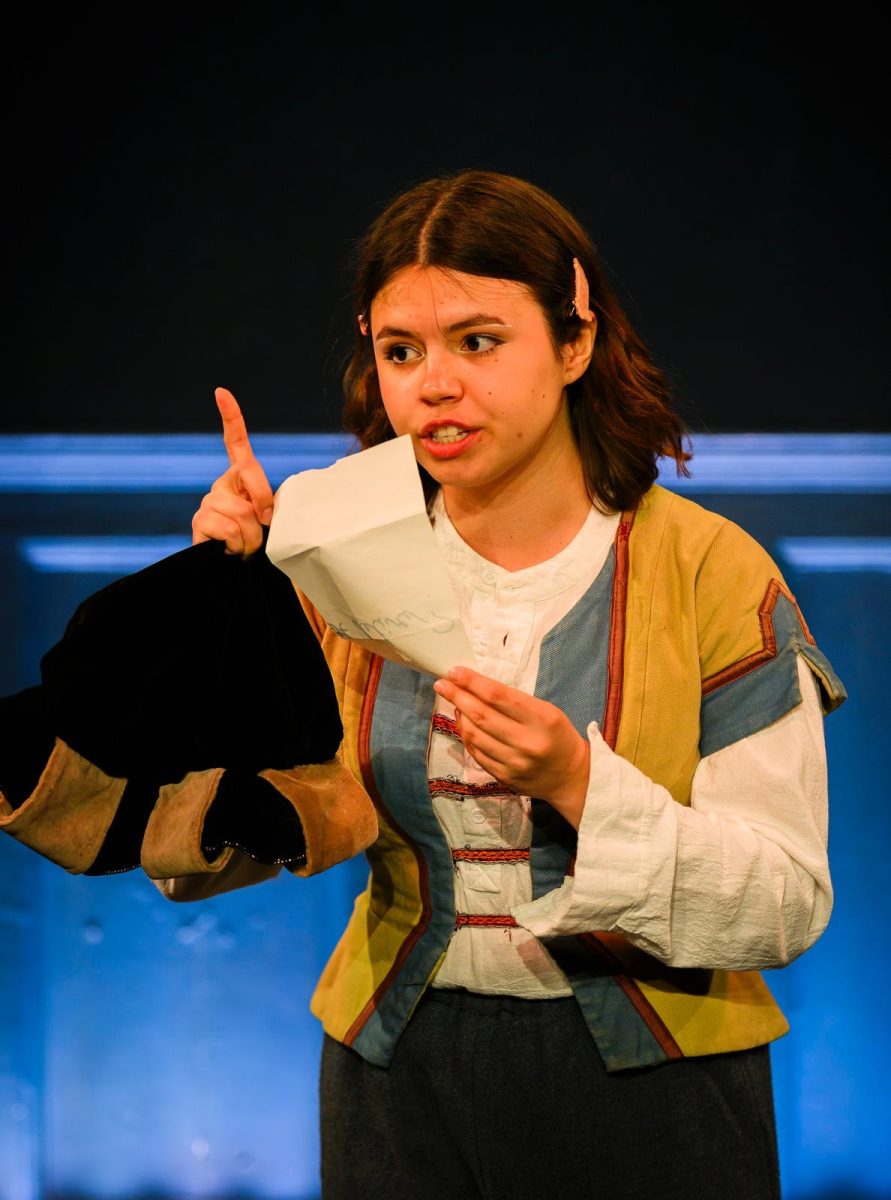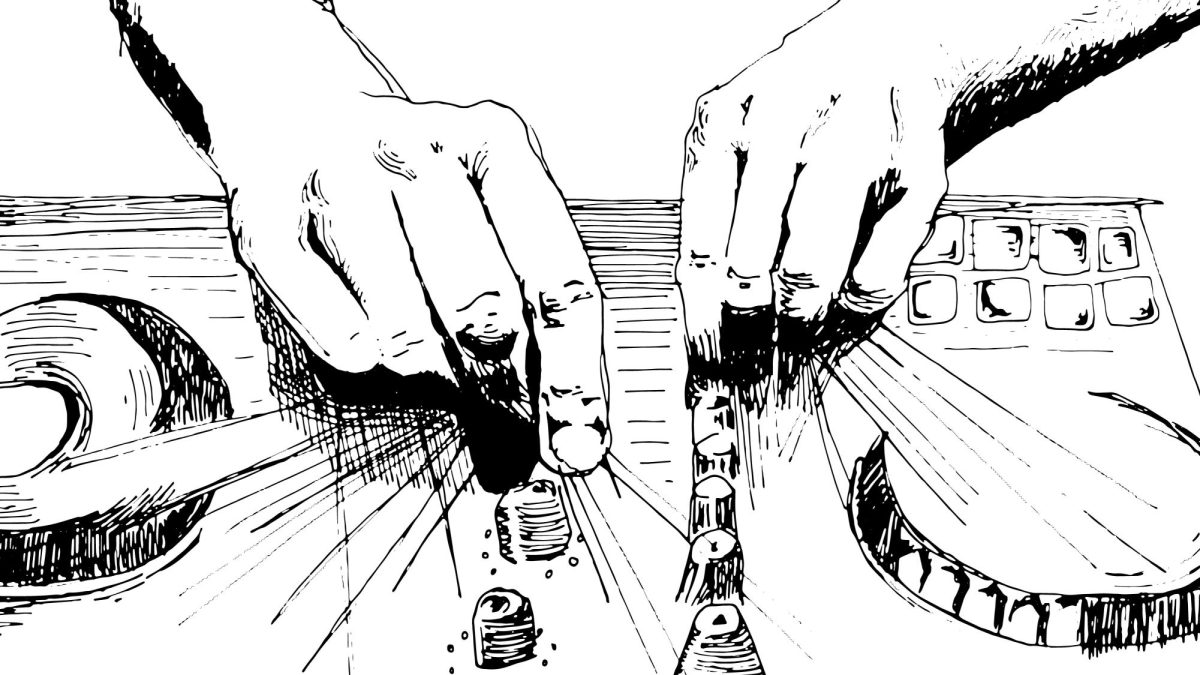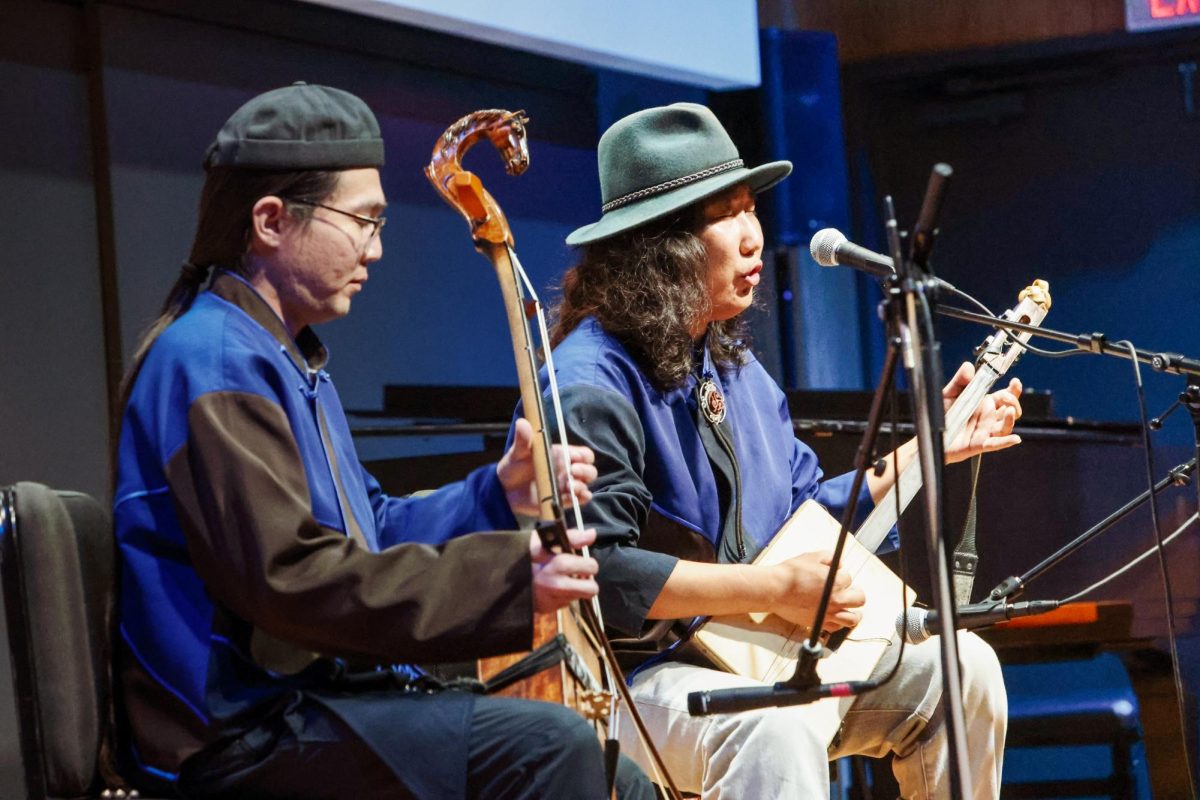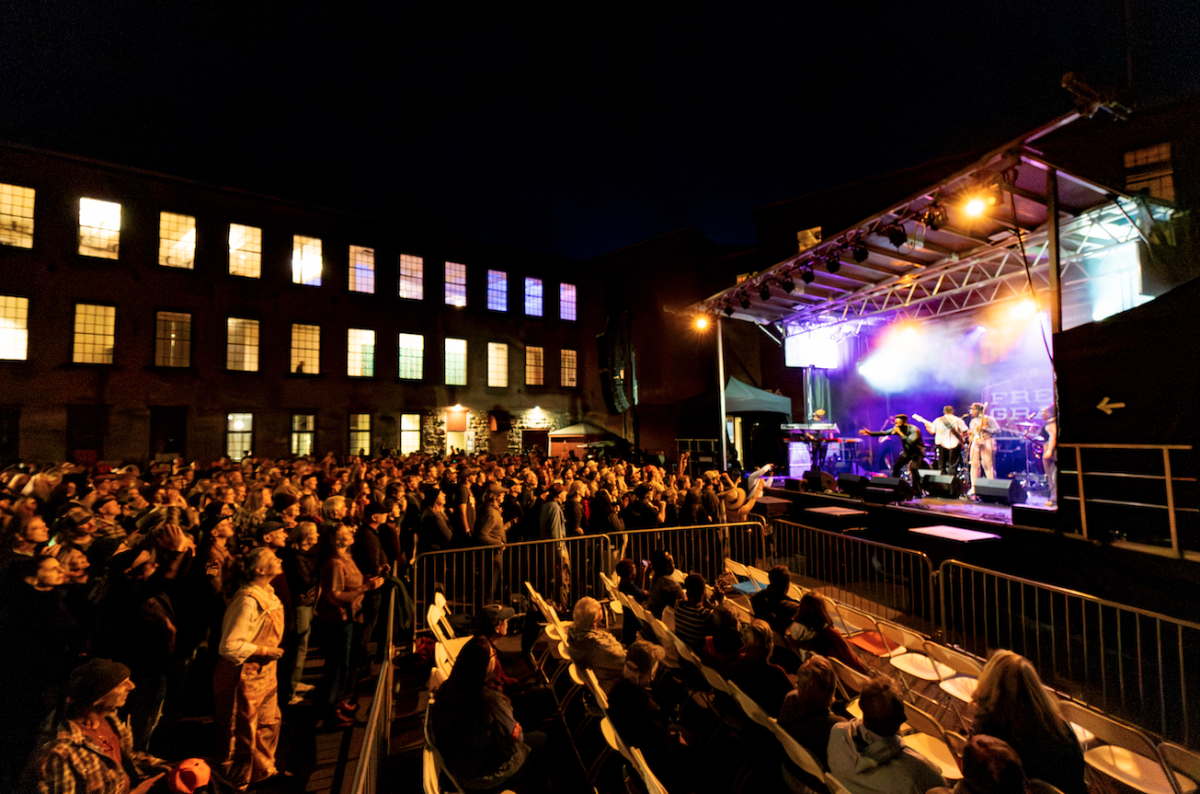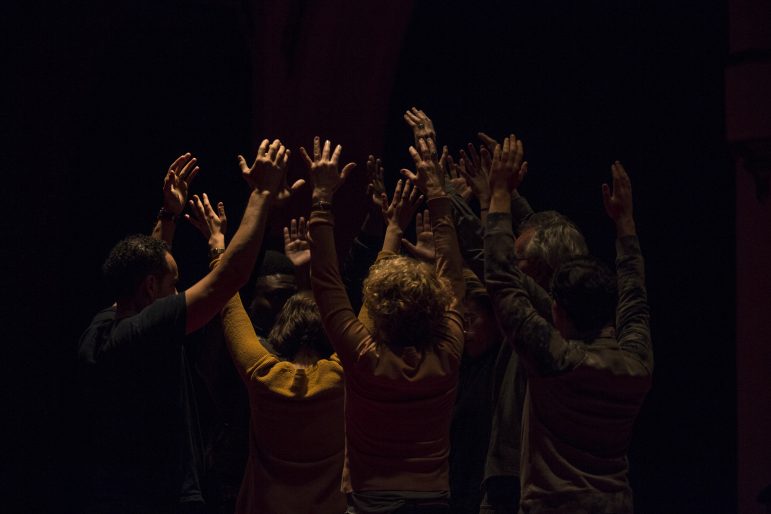
Formed in 2009, 600 Highwaymen is the stage name of theatre artists Abigail Browde and Michael Silverstone. Their participatory theatre experience, The Fever, will be performed at the ’62 Center this Friday and Saturday. The Record got the chance to speak with Silverstone about The Fever and the theatrical approach of 600 Highwaymen ahead of their upcoming performances.
Lily Goldberg: How did you meet Abigail Browde and form 600 Highwaymen?
Michael Silverstone: Abby and I went to college together, but we actually hated each other – I thought she was a real pain in the butt and she thought the same of me. I always admired her work, however. After college she was making a lot of work as a solo performer, and … around that time Abby and I became a couple, and we thought, “What if we started working together?” We started by going into a room together, and we’d invite actors into the room with us – actors from the world, not people we knew. We didn’t have money, a website, space, an audience really, but we liked how liberating the work was. So we kept going, and our work began to take on a deeper personal significance and a more widespread resonance. On our third show, we went to Austin, Texas, and developed a production of Death of a Salesman called This Great Country. We ended up bringing the show to New York and putting it on downtown. That was kind of a life-changing experience, since the audience, for the first time, was mostly people we didn’t know.
LG: A lot of your work deals with the relationship between familiarity and strangeness. How did this develop in The Fever?
MS: I’m someone who is personally more comfortable being in a room with strangers than in a room full of friends. The Fever explores the age-old relationship between one group of people looking at another, which is essentially what theatre is. We like the mystery of strangers. I think the nightmare for us would be to do a show where everybody knows each other, which might be a little bit of a test at Williams.
LG: We tend to think that performance and intimacy are fundamentally different, but it sounds like The Fever is troubling that binary.
MS: The show is performed with 73 people in the room. What we love about the show is that, by the end, you feel like everybody knows each other. Not because we’ve shared feelings; there’s just a sense of intimacy that comes from simply sitting and experiencing together. It’s not to say everyone has the same relationship to what happens in The Fever, but everyone was still part of what happened. Afterwards, people tend to want to have conversations, be around each other, think about each other in a slightly different way. Abby and I are trying to use theatre to get to a more profound place with the world. It seems to us things are getting quicker and thinner. Obviously there are more screens. We’re trying to figure out how to have profound experiences to examine our own place as a collective. The Fever is a place for that.
LG: The Fever has been described in past reviews as “ritual” – do you agree?
MS: “Ritual” has all these nasty connotations that I don’t particularly like; you know, like “let’s light some candles and sacrifice a cat.” Theatre is ritual. It’s a group of people performing for another. It’s a story we’re all going to believe is true. It’s a story we’ll look for ourselves in. There’s wonderful ritual in that. But I don’t think of The Fever as ritualistic; I think it’s a portrait of a group of people.
LG: What adaptations did the show undergo as you workshopped it?
MS: It’s different every night because the cast is different every night. The Fever took us about two years to make – our first residency on the show in 2015 was at MASS MoCA. At that point, it wasn’t participatory – it was performed by actors. We stayed with that version of the show for about a year until we finally got rid of it. We really wanted to make a show that dealt with all of us in the room together, not just those of us who appeared onstage. We can’t just go in and do it – it gets written in a new way every night.
LG: Had 600 Highwaymen done any participatory theatre before?
MS: Oh god, no. [Laughs.] I hate participatory theatre.
LG: Is it because it’s all touchy-feely?
MS: Because it’s terrible. When’s the last time you’ve seen a good participatory theatre show?
LG: The last time I went to a participatory theatre performance, I ended up with a surprise haircut.
MS: So there you go. Participatory theatre is the worst. It’s really awkward, no one wants to do it. The Fever is different – it’s participatory theatre made by people who hate it. We came to the idea of participatory theatre because we wanted to make a show about where we are right now at this moment in time – in 2019, in America, with Trump as president, negative 20 degrees outside… so it felt really stupid to cast actors to pretend to be us.
LG: Have you been surprised by the participation?
MS: We were a little afraid that it would attract participation zealots, but the best places to perform The Fever are places where no one knows anything going in. We went down to Florida to do this show, where people just had subscriptions to whatever plays were coming around. Last week they saw Wynton Marsalis. Next week they’d see Jesus Christ, Superstar on tour. And it was great!
LG: Have you drawn any connections between participation in theatre and participation in our current society?
MS: I think observing is a kind of participation. Whether you want to or not, you’re in the room, you’re a part of it. It’s not important that everyone be involved but you’re involved by nature of your being there. I’m still involved with the state of affairs in this country regardless of whether all I do is sit at home reading the New Yorker, or whether I’m an activist. I’m part of it. The Fever is examining how we participate even if we think we’re standing back.




